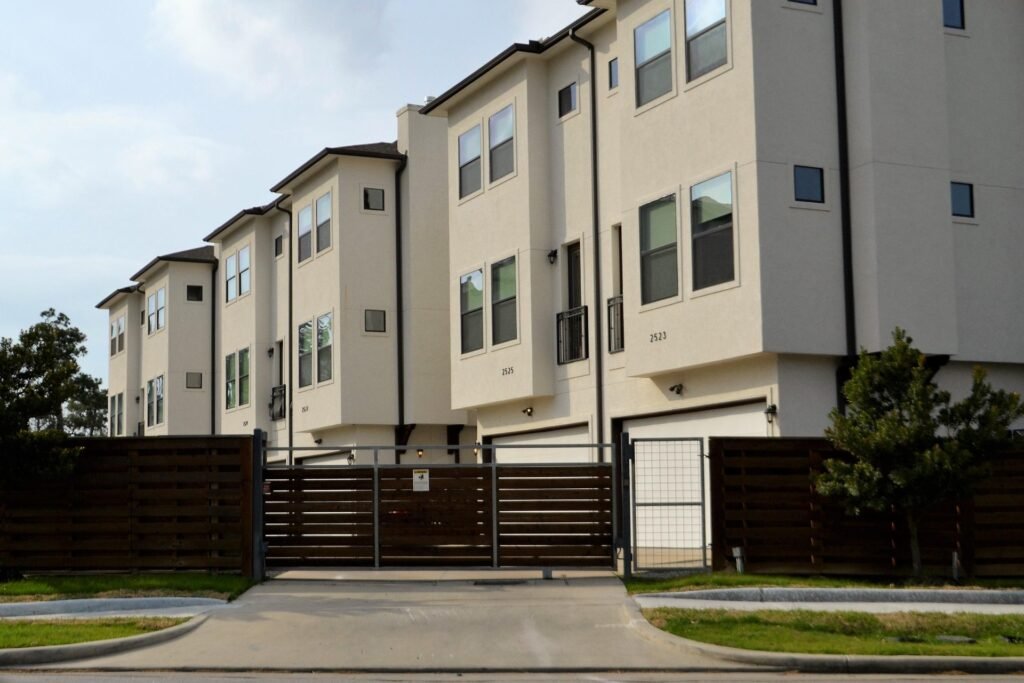Owning a house comes as the dream of many people but rising prices of land and houses have made this dream quite unattainable by many. That’s where the Affordable Housing Act 2023 kicks in to make housing more reachable. This new legislation triggered a sign of hope among the thousands of hopeful potential homeowners wishing to seek the assistance they need. Among the topmost important questions is- Do you qualify? But don’t worry if you are not sure about that because this article is meant for you to show the criteria of eligibility and how you might benefit from the program.
Table of Contents
Tip for Viewers:
Landlords and property managers can now tap into one‑time incentive payments and security‑deposit assistance under the Affordable Housing Act of 2023—reach out to your local HUD Public Housing Agency (PHA) to learn how to apply these bonuses and reduce move‑in costs for voucher holders Congress.govCongress.gov.
Voucher tenants should also ask their PHA about alternative inspection pathways that recognize inspections from other HUD programs—this can speed up lease‑ups and lower barriers to finding an available unit Congress.govCongress.gov.
Moreover, expanded PHA administrative‑fee authority now allows agencies to cover holding fees, utility deposits, and even renter’s insurance—further easing upfront expenses for families moving into affordable housing HUD.
Contact your local PHA or HUD Field Office today to see which new benefits you qualify for under the 2023 Act.
The Affordable Housing Act 2023 brings it all to the fore: What is it about? What is it going to deliver as benefits? Most importantly, what is going to be required for your application? Moreover, we’ve got excellent practical tips and perspective views from experts in the housing industry to help you adequately prepare for your application.
What is the Affordable Housing Act 2023?
The Affordable Housing Act 2023 considers prevailing increases in housing affordability stress to provide financial help and resources for qualifying individuals or families. It ultimately aims to facilitate the affordability generation of units while giving subsidies and low-interest rates or down payment assistance to eligible applicants.
“This legislation is a monumental step toward helping middle- and low-income families achieve homeownership without being weighed down by surging market prices,” explains Laura Matthews, a housing policy expert.

Key Features:
- Down Payment Assistance: A little help with reduced upfront costs for qualified applicants.
- Low-Interest Loans: Keys are with more affordable mortgage interest rates.
- Affordable Housing Units: Subsidized Houses in an Urban and Suburban setup.
- Support for First-Time Homebuyers: First Priortiy Assistance to Those Seeking a Home for the First Time.
Now that we know what the act entails, it is time to figure out if you, yes, you, are eligible under it.
Benefits of the Affordable Housing Act 2023
Why is this such a game-changer? Here is the assistance you could qualify for:
- Lower Financial Barriers: High down payment amounts are a painful pill to swallow; however, with a down payment assistance program in place, it becomes less of a hurdle.
- Lower Monthly Payments: Affordable repayment options, therefore, on the financial side each month are less stressful and make room for other essentials.
- Equity Building: Renting does not offer equity; an affordable home gives you a chance to grow your investment for your future.
- Accessibility: The act advocates housing development within short distances to schools, jobs, and mass transit.
- Community Development: It enhances affordable housing that adds to the well-being of the community and drives economic development.
These gains certainly substantiate why the majority of families are developing an interest in the opportunities under the Affordable Housing Act 2023.
Do You Qualify? Eligibility Guidelines
This is where things get to eligibility specifics. The government has clear definitions of who can benefit from this program. Here is a breakdown of some major factors:
1. Income Level
Your annual income weighs heavily in determining your eligibility. The Affordable Housing Act recognizes low- and middle-income people and defines income level criteria matching location and household size. For examples:
- Single urban individuals may set an annual income limit of $50,000.
- Four member household in a rural area may earn below $85,000 a year to qualify.
Expert Tip: Check with your state or county’s specific income limits for the best understanding of your eligibility.
2. First-Time Homebuyer Status
Did you know that the first-time buyer priority goes to someone who is buying for the first time? Indeed, the definition of a first-time buyer is anyone who has not bought a house within the last three years.
3. Employment and Credit History
It usually increases your chances for qualification if you are gainfully employed and have good credit scores. While some flexibility might be allowed, for the most part, most programs under this act require a credit score of no less than 620.
Quick Tip: Check your credit score free through myriad online resources, and then clear it before you apply for funding.
4. Residency and Citizenship
Those applying are required to be U.S. citizens or must have permanent residency. In some situations, applicants are also required to live or intend to live within the state or city that offers the program.
5. House Size and Usage
Another suitability stipulation is that the household should fit their needs. For instance, a family unit consisting of four should not apply for a one-bedroom condo. The purchased property must also be used for primary residence.
6. Participation in Financial Counseling
Most of the times, applicants are required to attend such sessions related to financial literacy. The course will educate for first-time buyers about mortgage issues, so they can avoid financial difficulties in the future.
How to Apply for the Affordable Housing Act 2023

Want to submit an application? Here’s a step-by-step guide on how to do it:
Step 1. Research Local Programs
To start off, search for the state and local housing programs that fall under the Affordable Housing Act. Each area may have its own eligibility requirements or additional benefits.
Step 2. Gather Documentation
Preparation of necessary files should include:
- Proof of income (tax forms, pay stubs)
- Letters of verification for employment
- Credit reports
- Proof of residence or citizenship
- Personal identification: driver license, Social Security card
Step 3. Speak to a Housing Counselor
Need help dealing with that? Certified housing counselors can give individualized advice. “A counselor can help you assess your eligibility and even assist with your application,” says Rebecca Lee, mortgage advisor.
Step 4. Submit Your Application
Once all documents have been assembled and the program checked, you are ready to go ahead and apply. Carefully follow the instructions for the application, and submit everything within the deadline.
Pro Tip: Follow up with your local housing authority to help keep track of the status of your application.
Step 5. Stay Patient
There can be different timeframes in processing, so exercise a little patience. While you wait, start your preparation for future homeownership with a budget, saving for closing costs, and exploring expected communities.
Why This Act Matters for the Future
The Affordable Housing Act of 2023 becomes not just a policy but instead acts as the ray of hope for families trying to secure a stable and decent life. This act reduces financial barriers to homeownership and thereby opens opportunities for the growth of the community and the empowerment of individuals.
Expert Insight: “The long-term benefits of affordable housing extend beyond the individual; they uplift entire neighborhoods and strengthen local economies,” emphasizes Sean Carter, a real estate economist.
Take the First Step Toward Homeownership
Shall we see if you qualify? Get started today! Check for opportunities in your area and get any documents in order to begin your application. The Affordable Housing Act of 2023 may be the support you need to realize that dream of yours.
If all this is daunting for you, consider finding a housing counselor or your local housing authority to help you. Homeownership is just a step away!
FAQs
Q1. Can I apply if my income is slightly above the limit?
Some programs allow for some flexibility if your income is only a little above the limit. Find out what the specific limiting requirements of your chosen program are.
Q2. What happens if I get denied?
You may request feedback to find out why you were not accepted, & an application may be made after fixing the areas of deficiency. In any case, housing counselors could help alleviate the situation.
Q3. Does it apply to rentals?
Yes, because certain portions also apply to affordable rental housing projects, which keep rent levels down or financially assist tenants.
Q4. Would this act benefit retirees?
Absolutely. Retirees are an ideal type of people who would take advantage of this act’s housing programs-whether you’re on a fixed income or in search of a larger house?





